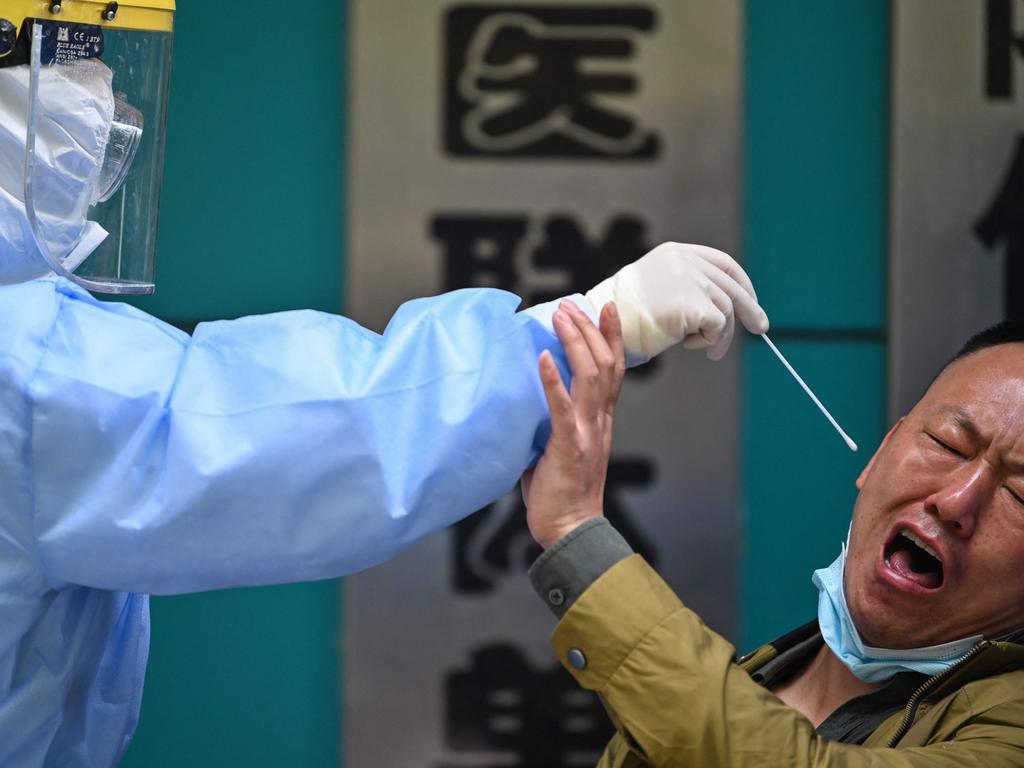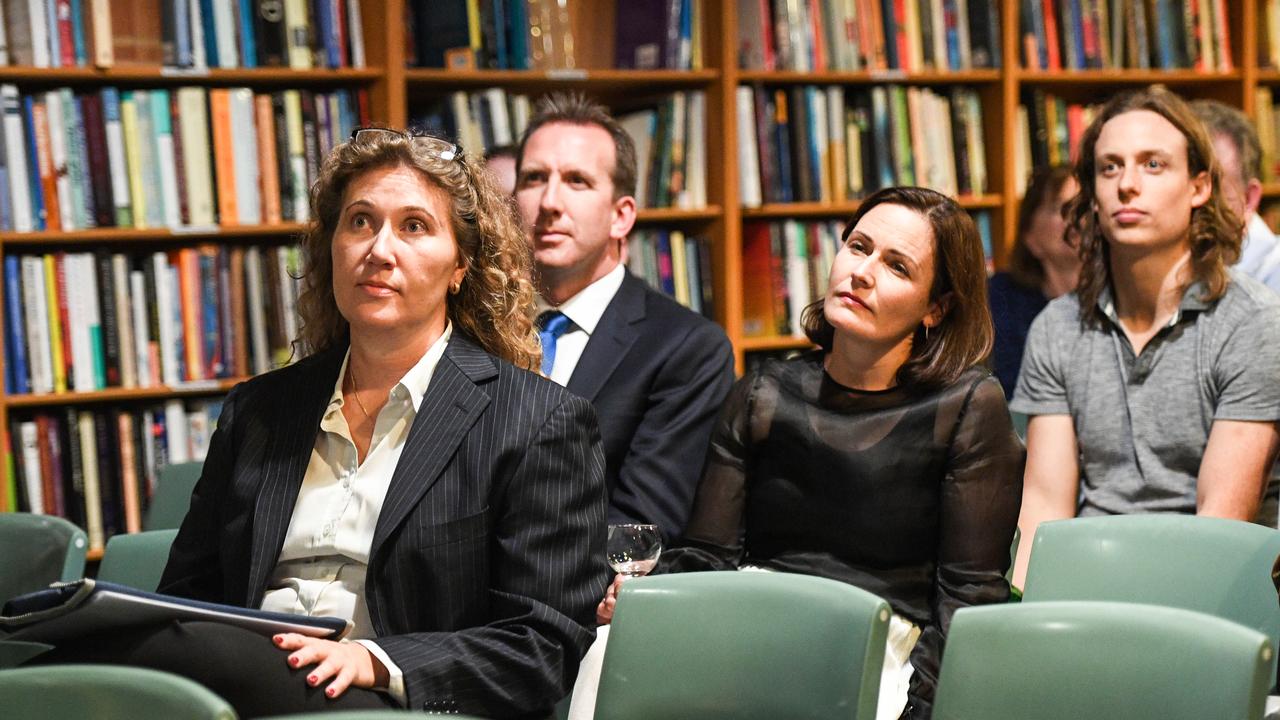Mike Pompeo rallies allies against China threat
The man who may be the next US president sees a dark world with one enormous problem at its centre: the Communist Party of China.
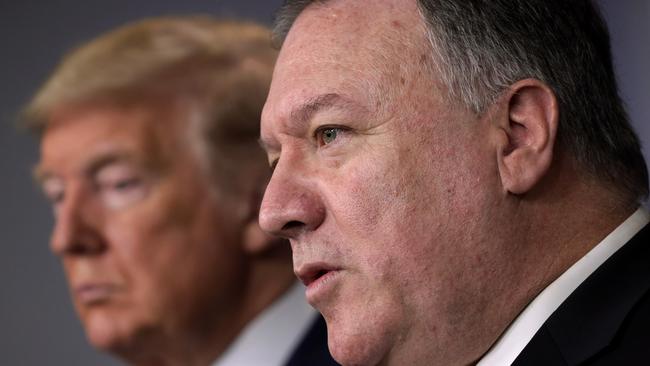
Mike Pompeo was the surviving resident adult in the national security administration of former president Donald Trump. He was, successively, a pro-Trump congressman, CIA director for a year, then secretary of state for two. Uniquely in that turbulent, unstable administration, he not only survived, but left each position with his reputation enhanced and solid achievements under his belt.
Pompeo was certainly controversial, and by previous diplomatic standards strikingly direct. But his accomplishments are undeniable. He achieved a string of peace agreements between Israel and its Arab neighbours, which would have been unthinkable under Barack Obama. And he established a completely dominant new US position on China, which the administration of Joe Biden has honoured by not changing in any significant way.
More than that, in the neurotic performance drama of Trump’s erratic statements and mercurial emotions, there was a ballast — a substance and reliability — to Pompeo that every US ally valued.
Now he looks to be running, if as yet unofficially, for president in 2024. Although an ebullient and engaging personality, he sees a pretty dark world with one enormous problem at the centre of everything — the Communist Party of China.
In a wide-ranging and lengthy interview over Zoom, I asked Pompeo what he thought Beijing’s strategic ambitions really were. His reply was less than cheerful.
“Two things we can point to in making predictions about their actions. First is what they say. Their central idea is to undermine democracy everywhere. The Chinese Communist Party deeply believes their Marxist/Leninist ideology is the right ideology for the world, and they attempt to impose that ideology everywhere.
“Second, observe their actions. They chastise their counterparts. Any time someone dares ask what’s happening in western China (Xinjiang), in Tibet, Hong Kong, Taiwan, Mongolia, they say stay out of our business, that’s our internal affairs.”
Pompeo argues the best way to avoid conflict and keep democracies safe is for the US and its allies and friends to make it clear to Beijing that breaching its international obligations carries a cost.
“When the CCP says we’re going to allow the people of Hong Kong to be semi-autonomous for 50 years and then violates it, the world has to take note, the world has to respond to it, the world cannot say ‘Oh darn it, that’s just the Chinese doing what they do’.
“When the CCP puts a million people in internment camps, the world can’t just say ‘Oh, you know, it’s an internal matter’.”
Pompeo agrees with the US Pacific Commander Admiral Philip Davidson that there is a serious chance Beijing could launch military action against Taiwan: “In my time in service I saw both the Chinese actions and the intelligence we had about their intentions. The reunification of Taiwan is something that they are intent upon. The means that they will use are likely to be coercive at the front end and military at the back end, only when required.
“But you can see them already ratchet up the pressure. They challenge every time the US lives up to simply what we promised to do, to provide weapons to the people of Taiwan so they can defend themselves. We have a responsibility to live up to our commitments.
“When we hear the words of the most senior Pacific commander for the US, we know that the world has a responsibility to make it clear to the CCP that such an undertaking against Taiwan is simply unacceptable.”
Sensibly, Pompeo would not commit, even out of office, to backing a specific US military response if Taiwan is attacked (despite my strenuous efforts to get him to do so), but the thrust of his sentiment is clear: “Look at the actions we (the Trump administration) took for four years — the clarity with which we spoke about these issues, the preparedness we demonstrated to engage Taiwan, the efforts we made to get Taiwan into the World Health Organisation, the work we’ve done with Taiwan on the commercial side.
“We have a broader responsibility that is wrapped up in this to make it clear to the CCP that their continued abrogation of their international responsibilities has real costs.”
Pompeo argues that Beijing’s actions right now — not its speculated future actions — put the world at risk.
He believes the COVID-19 virus came from a Chinese laboratory, but even if it didn’t the danger of such an event in the future is real. The world faces the prospect of new pandemic outbreaks as bad or worse as the COVID-19 pandemic we are still grappling with, he claims, because of continued Chinese biological weapons work.
“This is an ongoing challenge because the CCP continues to engage in this sort of biological research. The risk for something like this happening again from a Chinese facility is real and significant,” he says. “We can see in the millions of lives lost, and the billions of dollars of wealth destroyed, that the world must make sure that China never does this again.”
This is a tough-minded assessment. But Pompeo’s view of all this is a little more nuanced and qualified than he is sometimes given credit for. Let him explain:
“I am highly confident that the virus began in Wuhan, China. I am reasonably confident it began in the (Wuhan Institute of Virology) laboratory. I’m less certain of that and there are still more facts that are unknown and the CCP has diligently tried to make sure that we never know. But the weight of evidence suggests that it likely came from that laboratory. There is enormous evidence for that.”
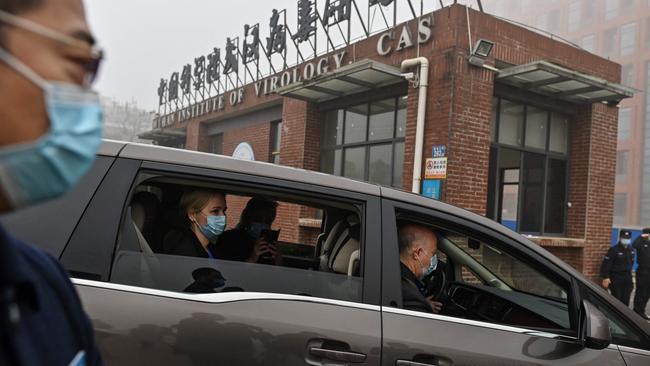
Before considering the rest of the Pompeo argument, it’s important to gauge precisely what he has said. He thinks the virus came from the lab, but he’s not sure. The Australian agencies that assessed this question came to what seems to be the opposite conclusion. They think the virus did not come from a lab but from the animal kingdom to human beings. But they, too, readily admit that they are not sure.
Thus Pompeo on one hand, and our agencies on the other, accept the same range of possibilities, accept that they cannot know for sure, but weight the different factors a bit differently. Neither position is unreasonable.
I ask Pompeo, could the Chinese possibly have released the virus deliberately? “I’ve seen no evidence that they intentionally set it loose,” he says. “None”.
There is now a big and public literature on these questions. Many nations which do biological warfare research, and that’s a lot of nations, engage in what is called “change of function” research. In this, they manipulate viruses within the laboratory to make them more transmissible or more deadly. They justify this on defensive grounds. Doing this research allows them to develop potential vaccines and other defences in case they are ever attacked with such biological weapons. But the very act of this research creates enormous dangers.
The laboratories create deadly viruses that nature had not previously created. You only need the cleaning or protective protocols to break down once and there is a potential deadly spread.
Pompeo is much clearer that Beijing stands condemned over the cover-up regarding the virus. Like most commentators, he is deeply unimpressed with the recent World Health Organisation report that cleared Beijing of all culpability.
Pompeo says: “We still don’t know who Patient Zero was. We still haven’t interviewed the doctors who were working in the laboratory. The central moment the Chinese knew they had a virulent virus that was human-to-human transmissible, their choice was to lock down Wuhan and lock down the world from understanding the risk that was presented to it.
“The Chinese know what happened They have data that could answer all these questions. As you and I sit here today, they are choosing not to divulge it to us. I think that’s incredibly telling.”
Pompeo is deeply committed to the US-Australia alliance and believes that the Quadrilateral Dialogue involving the US, Australia, Japan and India is a key to dealing with the challenge posed by Beijing’s strategic ambitions.
“These are four great friends. We are great friends because we have a shared interest in what humanity could look like in 10 years, in 100 years.
“We are real democracies, with all the noise and hubbub that comes with that — real democracies working every day to make their countries great.
“I view these four countries as essential in pushing back against the CCP. The primary tool used by the Communist Party of China is economic power. It has 1.4 billion people. They have spread their power around the world, using predatory means via the Belt and Road Initiative.
“These four (Quad) countries represent a very significant piece of economic activity among open and free societies. They have enormous potential to influence who can trade and how they can trade. We can demand fairness, openness, free trade. We should do our best to get rid of tariffs on each other.”
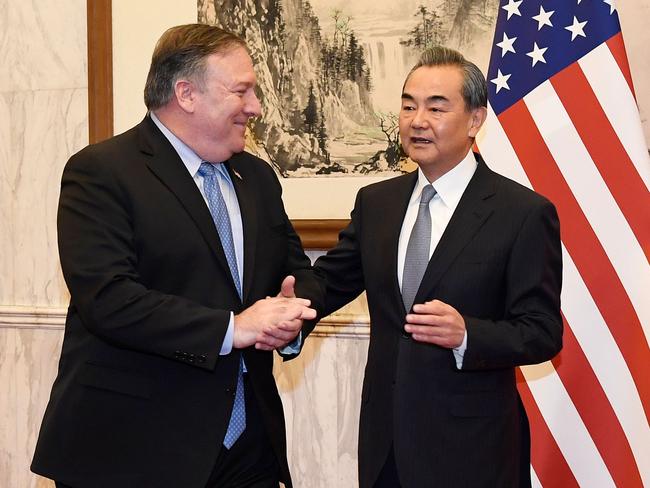
Pompeo at no point will criticise Trump, but free trade does figure in his rhetoric much more than it did in Trump’s. Pompeo gives a cautious pass mark to the Biden administration for its early performance on China and Asia: “I’m hopeful, in that there is a bipartisan consensus in the US on the threat from China. Democrats understand this as well as Republicans. I’m rooting for the (Biden) administration to have the backs of our friends like Australia, India, our friends in Southeast Asia, when they are confronted by all the things we know the Chinese are likely to do. I hope the administration will not contain, but convince, the CCP that their aggressive, malign activity will simply not be successful.”
One area he is clear the US and its allies are operating well below par is in the competition in key hi-tech fields such as artificial intelligence, blockchain, quantum computing, hypersonic weapons. The Chinese are intensely focused on this technology competition. These new technologies, Pompeo says, will be the commanding heights of the next generation, whereas previously the commanding heights were provided by resources like oil: “We have to make sure the technology of the future is democratic technology, not totalitarian technology.”
If Pompeo gives Biden a cautious pass on China, he is far more critical on the loosening of US policy towards Iran and what he sees as the potentially extremely dangerous economic deal Iran and Beijing have just concluded.
“The Chinese need oil and the Iranians need money and weapons systems,” Pompeo observes.
“We (the Trump administration) were able to successfully deny Iran the ability to ship crude oil in significant amounts to China. Now we’ve got Iran freed from any prohibition on arms sales.”
Under the international agreement, which Trump repudiated, there was a temporary ban on Iranian arms sales, but it has now expired. The Biden administration has abolished the unilateral mechanisms which Trump and Pompeo used to keep Iran away from the international arms trade. Now, it’s much more open slather.
“You will see increased trafficking in weapons systems,” Pompeo tells me.
“The Iranians have the capacity to build some of these on their own, but Chinese cyber capability, Chinese missile technology — all the things the Chinese have been working on these past 25 years — are likely to now find their way to an ayatollah who will use them to destabilise the Middle East.”
Pompeo is unhappy with North Korea’s recent ballistic missile tests. He notes that they were relatively short-range systems, but they are clear breaches of UN Security Council resolutions. However, he makes a point which to me has always seemed obvious. It is impossible to reform North Korea meaningfully unless Beijing itself decides that it wants North Korea to change.
I try to draw Pompeo into some kind of comparison between his own targeted remarks and the sometimes wild and scattergun things Trump said as president. But he certainly won’t criticise Trump. He makes the reasonable point that the Trump administration should be judged on what it did, rather than whether it lived up to diplomatic niceties.
“I’m from Kansas and my diplomatic skills are about two out of 10,” Pompeo says.
“The president was the same. We say what we think.”
Actually Pompeo is being too modest there. His remarks, while you might have disagreed with them occasionally, were always judged, making a case. Even his best friend couldn’t say that with a straight face about Trump.
But Pompeo achieved what he did by running his own race while never being disloyal to Trump.
So, is he now planning to run for president?
He laughs, then says: “I’m always up for a good fight. But I have a mission before that. Republicans don’t control any of the houses of Congress. We need to get them back and I want to help with that.”
Pompeo is a man with a lot invested in the future.


